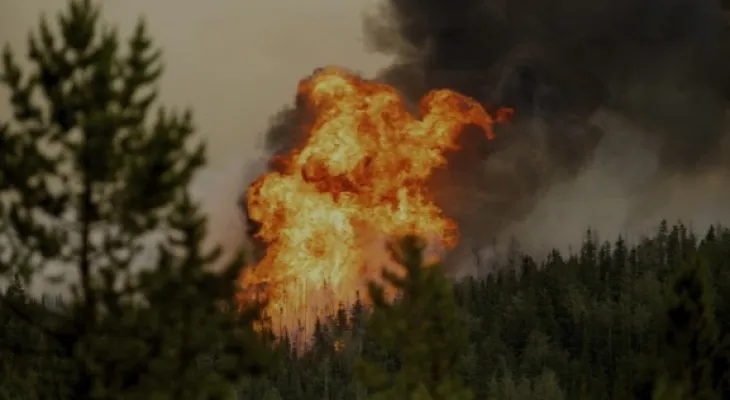Search here
Newspaper
Search here

Arab Canada News
News

Published: August 12, 2023
With the worst wildfire season in Canada’s history continuing, officials said they expect above-average fire activity throughout August and into September across vast areas of northern and western Canada.
During a technical briefing on Friday, Michael Norton, the Executive Director of the Northern Forestry Center at Natural Resources Canada, stated that the same drought conditions that drove this year's wildfire season to break records will contribute to ongoing fire activity until late summer. While in some areas, rain has helped to reduce fire activity, Norton said that fires remain "extremely active" in British Columbia, the Northwest Territories, and Yukon.
As of August 10, 5,593 fires have destroyed 13.4 million hectares of land - an area larger than that of the three Maritime provinces combined - and have resulted in the deaths of four firefighters and forced the evacuation of 167,589 people across the country.
Norton also said, "For a bit of comparison, the total length of the fire perimeter this year so far would stretch more than 90 percent of the way around the equator."
Carbon emissions from the fires now exceed one billion tons of CO2 equivalent, which is comparable to the emissions produced by 306 million cars.
According to wildfire data collected by Natural Resources Canada and Environment and Climate Change Canada, every region of the country has experienced a particularly severe wildfire season, with fires breaking out in places that are not typically associated with extreme wildfires, such as Nova Scotia.
However, Brian Simpson, the Head of Wildfire Intelligence at Natural Resources Canada, told reporters on Friday that a few provinces, in particular, have driven national averages up this year.
Simpson said, "The province with the most burned area is Quebec by a very wide margin." In June, dozens of wildfires in Quebec generated enough smoke to trigger air quality warnings in central and eastern Canada, along with vast areas of the United States.
In the same month, the Donny Creek fire in northeastern British Columbia was classified as the largest blaze recorded in the province’s history.
Canada has relied on international firefighting assistance from Australia, Brazil, Chile, Costa Rica, France, Mexico, New Zealand, Portugal, South Africa, South Korea, Spain, and the United States throughout this unprecedented season. As these countries scale back their assistance efforts to address increasing wildfire seasons at home, Norton said that Canada has sufficient capacity to manage the remainder of this "remarkable" season and prepare for the next season.
He also added that this is partly due to wildfire investment in the federal budget for 2022, including $256 million for equipment over five years and $28 million over five years for wildfire management under the climate change program.
Comments